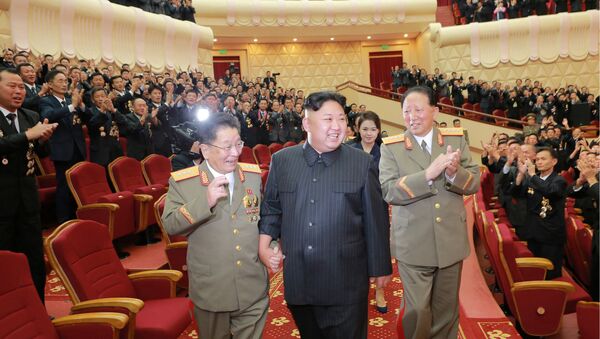Commenting on the upcoming vote by the UN Security Council on more sanctions against Pyongyang to retaliate against its most recent nuclear test, Russian political analyst Vasily Kashin warned of the far-reaching consequences of this test.
"North Korea is yet to develop a missile capable of delivering a warhead to the United States. But the means of delivering nuclear weapons to South Korea and Japan has already been created. Earlier, the hope was that Pyongyang's possible nuclear strike on these countries will be weakened by the two's air defense systems and that it will be strong but not fatal. Now there is no such hope," Kashin said.
Touching on Pyongyang's sixth nuclear test, Kashin recalled that North Korea probably tested a thermonuclear device with a capacity of at least 100-140 kilotons of TNT.
"But it can't be ruled out that the actual power of the device was even greater. Judging by the materials published by North Korea, the tested device is compact enough to be installed on a ballistic missile. At the moment, there is no reason to doubt this data," he said.
He added that this "new North Korean success is changing a lot because Pyongyang's previous nuclear tests were either less powerful than the 15-kiloton Hiroshima bomb or slightly stronger than it.
"The new North Korean nuclear weapons are much more powerful. An increase in the damage zone will not be so huge but if at least one North Korean missile with a nuclear warhead hits a target, the death toll will grow dramatically," Kashin said.
Citing increasing threats related to the spread of North Korean nuclear technologies, he said that "it is worth thinking whether the collapse of the North Korean regime will meet someone's interests because after this possible collapse it won’t be possible to trace the fate of these technologies."
"In this vein, the beginning of negotiations between the major world powers and North Korea looks a predetermined event, something that will be held mainly in line with North Korean terms," he said.
He warned that any attempts to increase the sanctions pressure on North Korea and introduce a fuel blockade are most likely doomed in advance because Pyongyang has already created significant strategic reserves of fuel. In this regard, Kashin also pointed to reports about North Korea's domestic production of synthetic gasoline.
"In these conditions, the responsibility of UN Security Council members who will discuss the draft resolution proposed by the United States increases significantly. Previously, Russia's permanent envoy to the UN Vasily Nebenzya expressed doubts that the document could be agreed and adopted in the nearest future," Kashin said.
He warned that "if there will be no amendments to the resolution, the sanctions regime will lead to almost a full blockade of North Korea," something that alarms a number of countries, including Russia and China.
In this context, Kashin quoted Russian Foreign Minister Sergey Lavrov as saying last week that apart from pressure on North Korea, efforts should be made to find a political and diplomatic solution to the Korea crisis.
On August 5, the UN Security Council unanimously adopted Resolution 2371, which further tightens sanctions against North Korea in response to Pyongyang's ballistic missiles tests conducted in late July. However, the restrictive measures failed to prevent North Korea from conducting further tests. Last week, North Korea announced that it successfully tested a hydrogen bomb that could be loaded onto an intercontinental ballistic missile, triggering worldwide condemnation.




